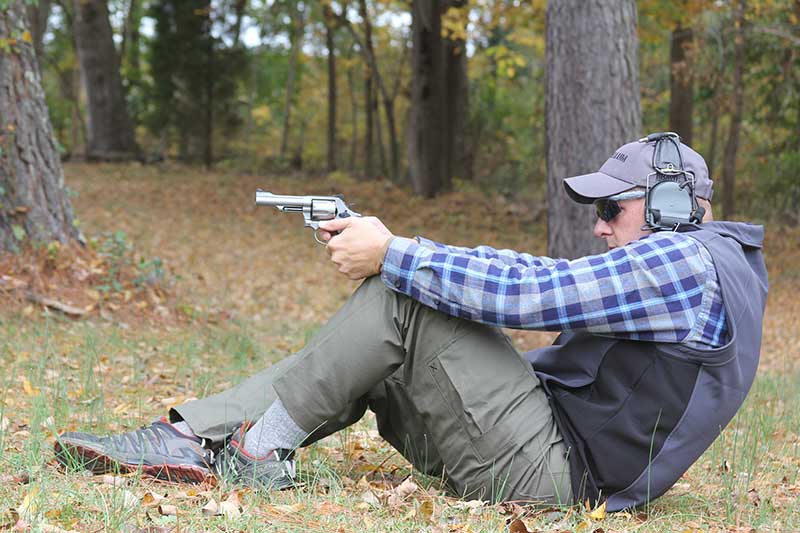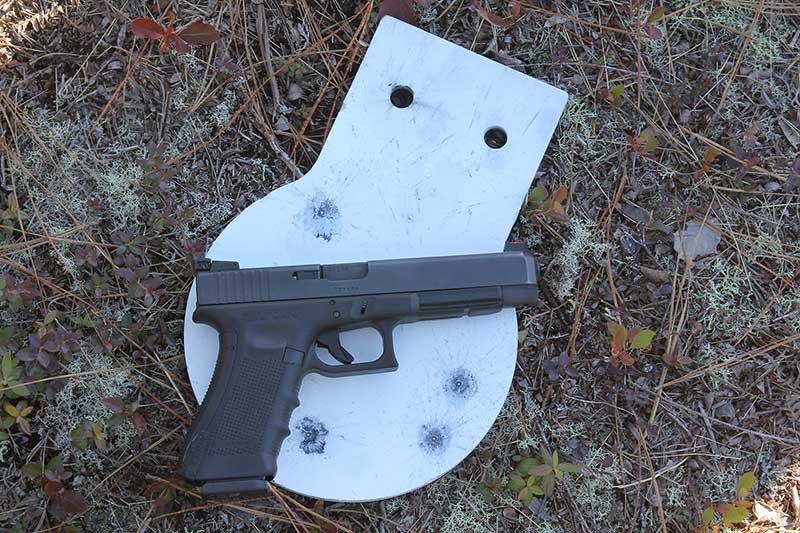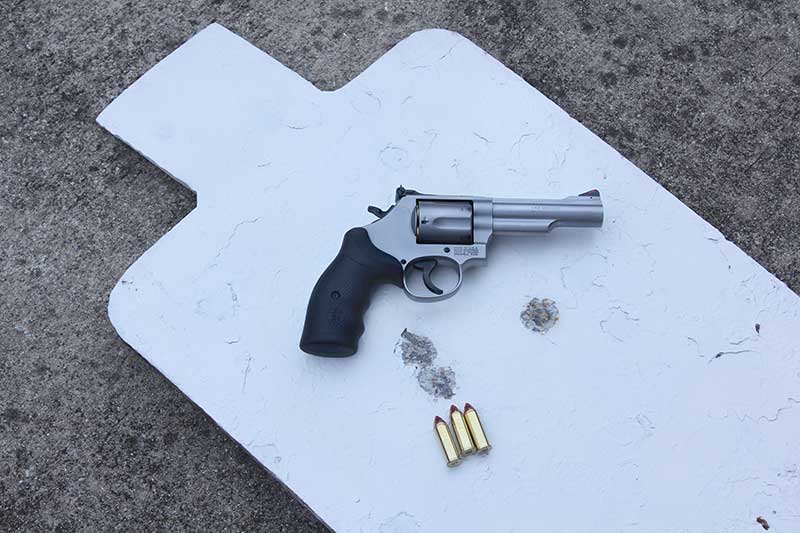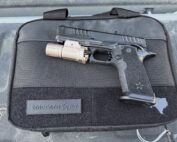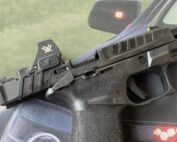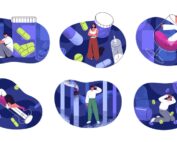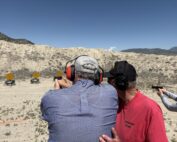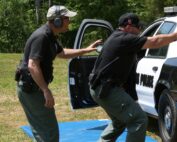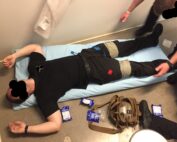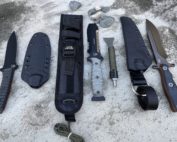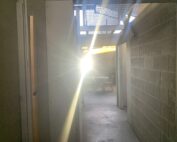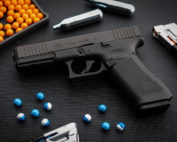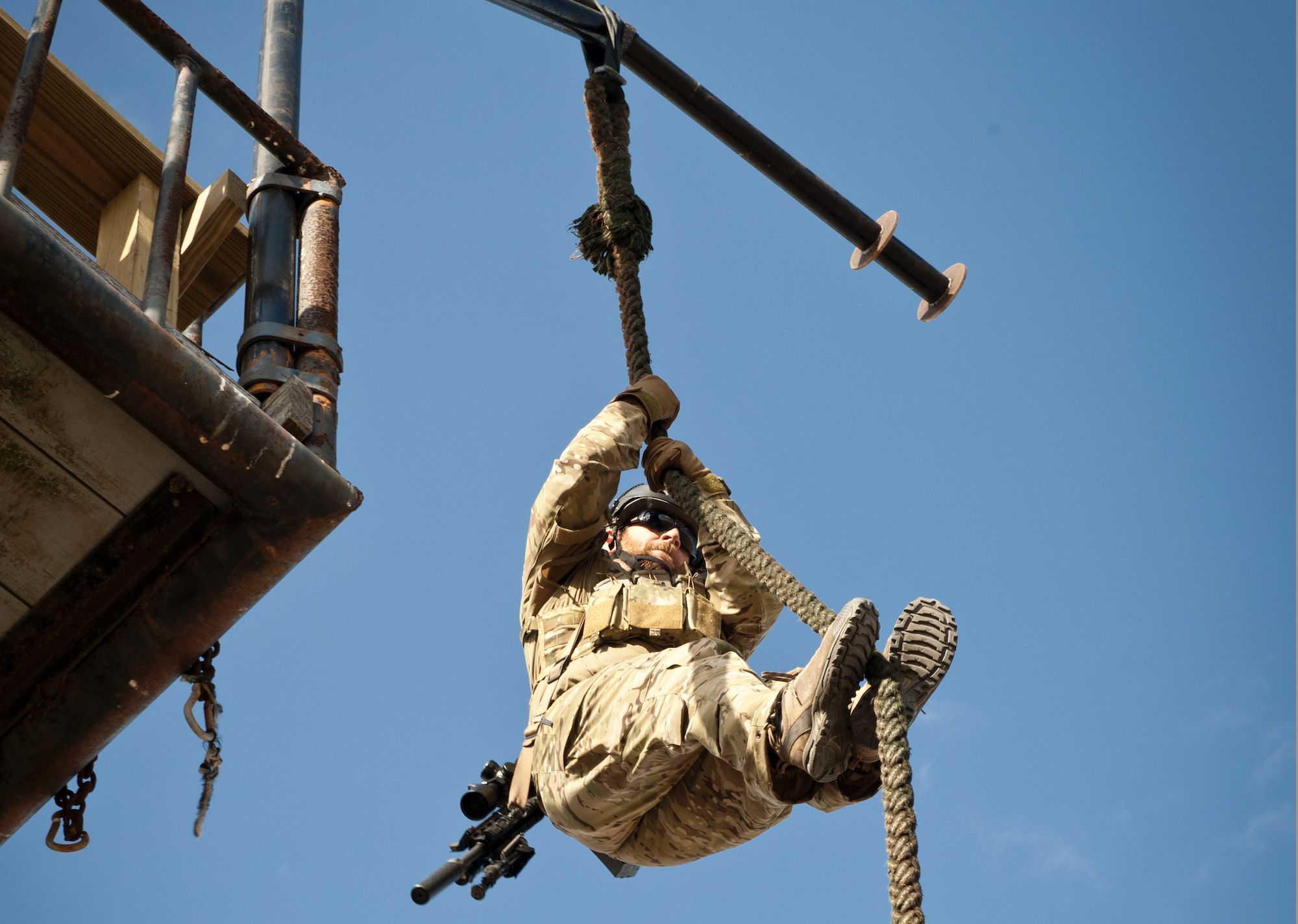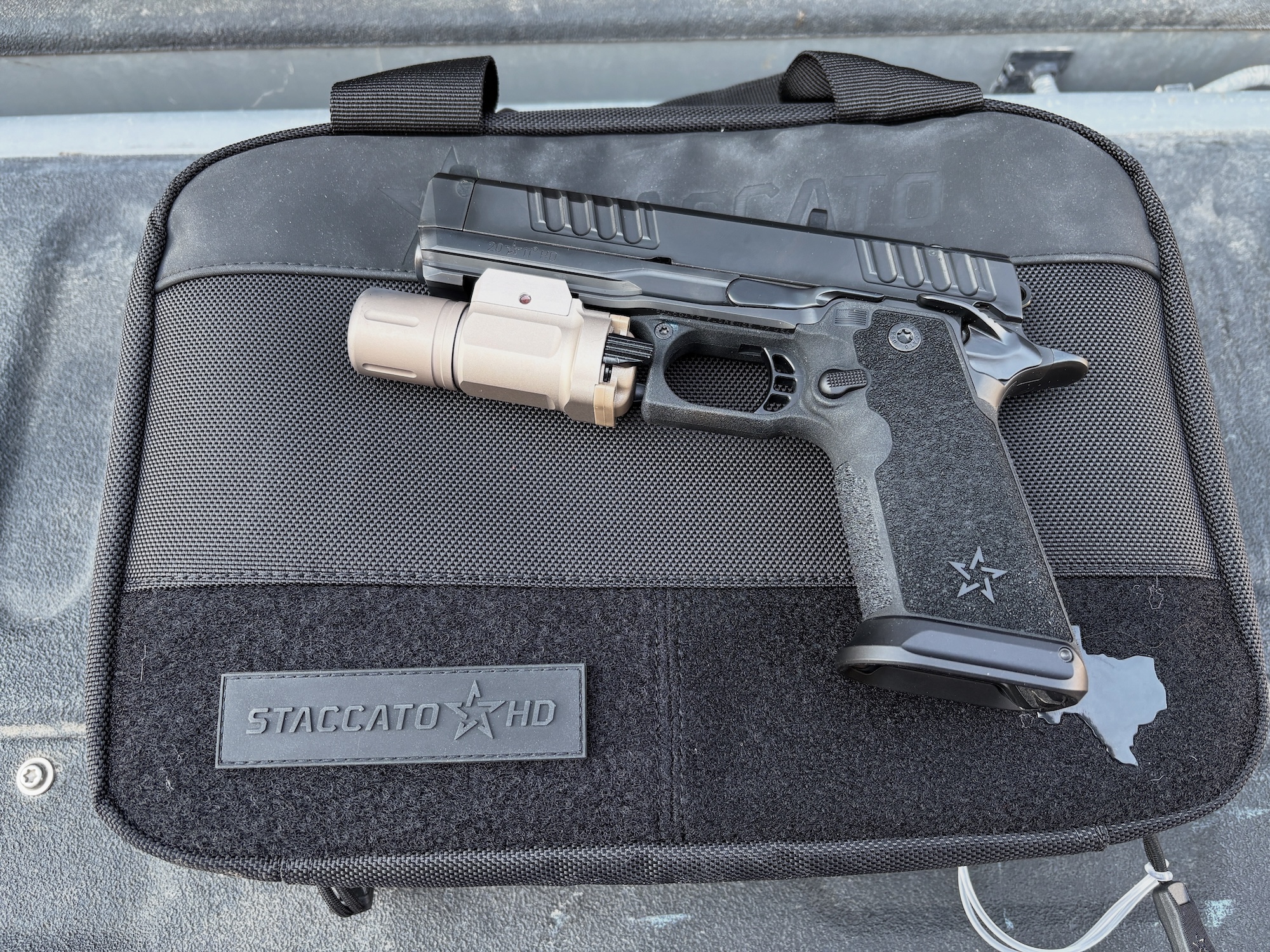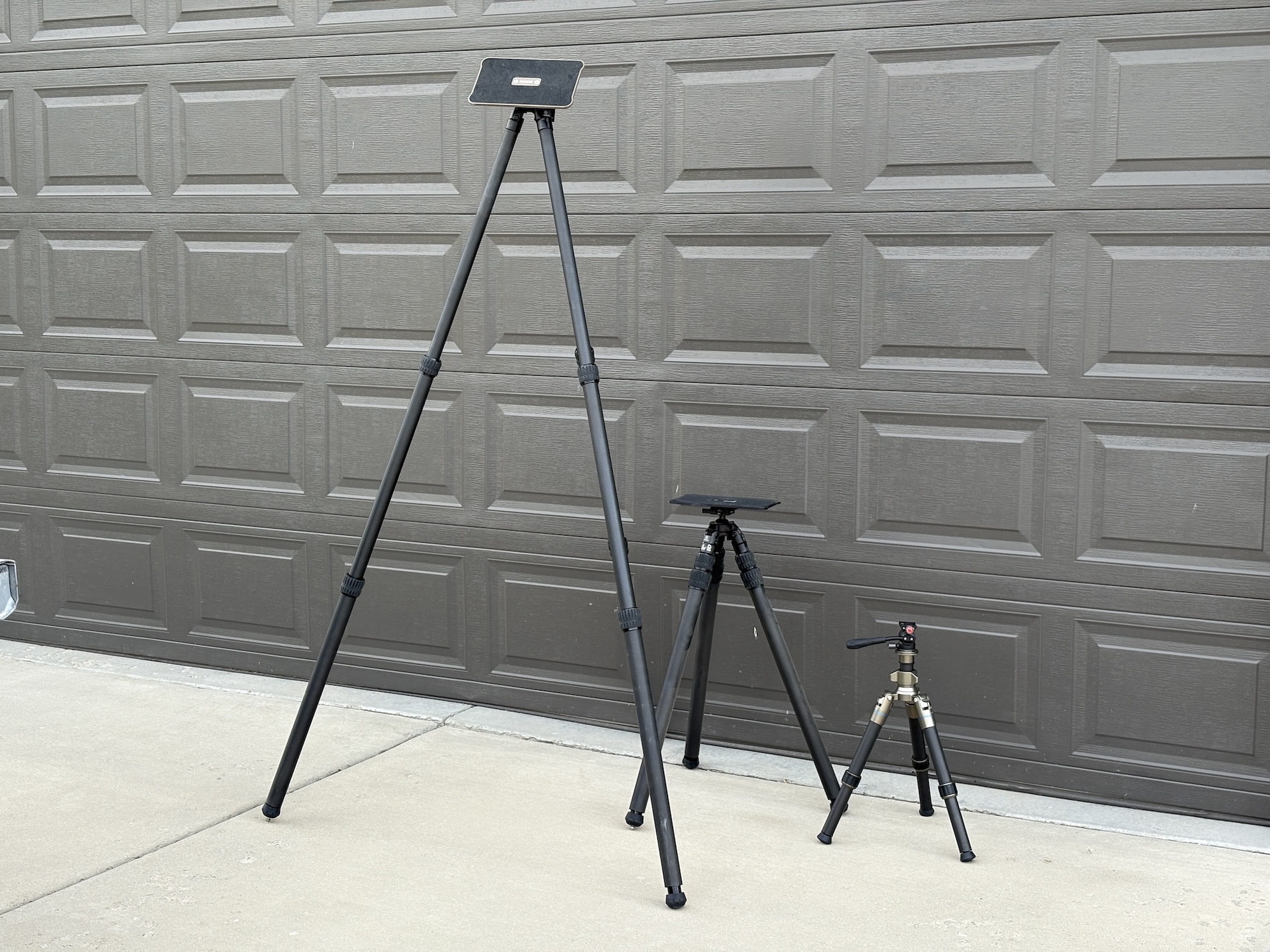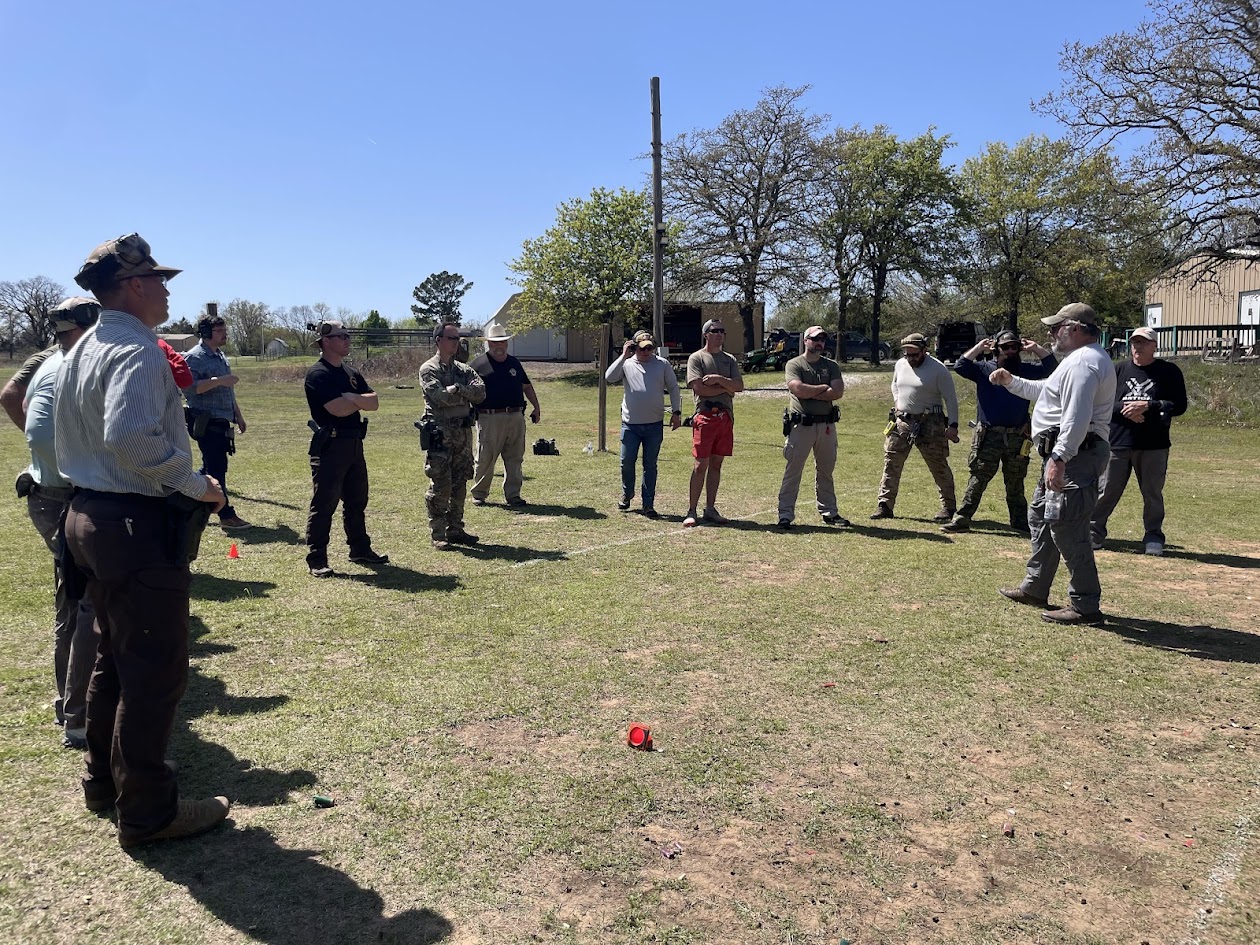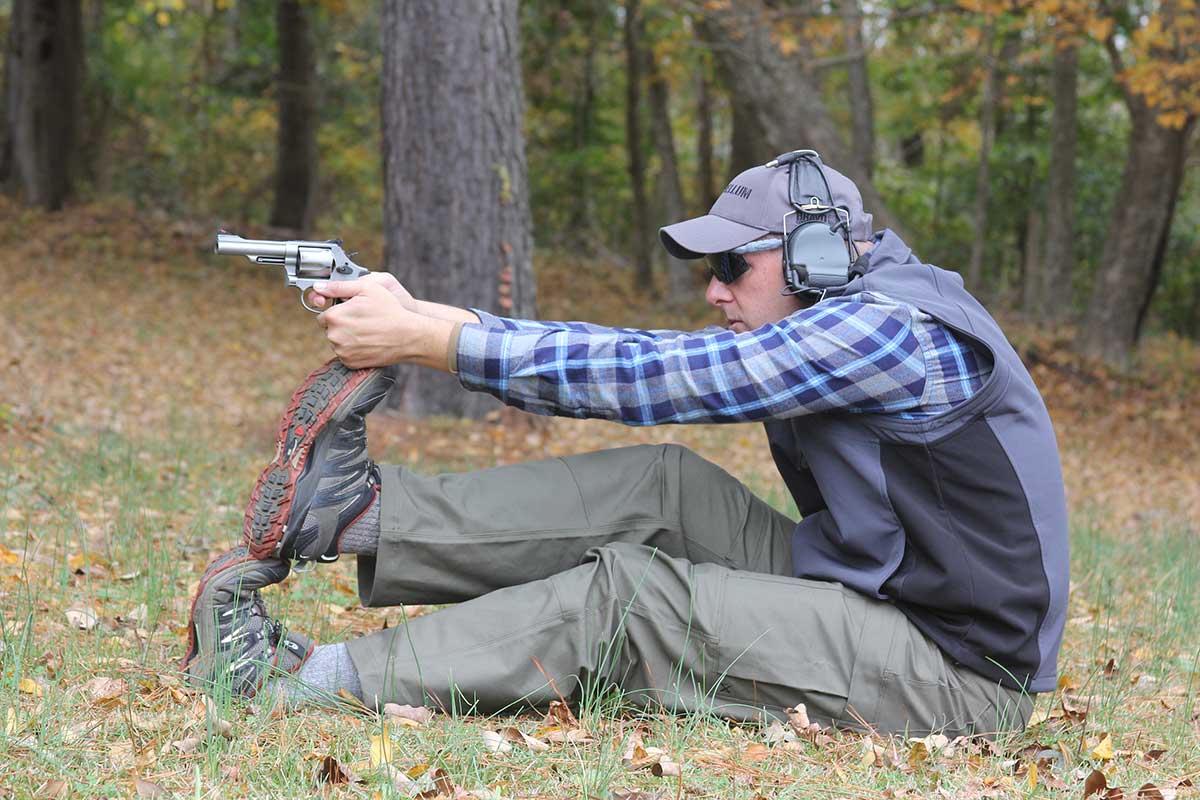
AC121720-SittingPositon-HS-4-800
Long-range handgunning rarely receives much training effort. Consequently shooter’s ability at distance is often pretty erratic.
The standard training approach, often thrown in quickly if time allows, is to have the shooter take a knee or go prone. I’ve seen a great many shooters who actually shoot worse from kneeling than they do on their hind legs in their normal stance. I’ve never had great success in stretching out the range from prone, either.
Talking over the last year with several trainers and very experienced teammates has revealed a similar ambivalence about pistol prone. Issues identified have ranged from zero shift with some shooters, concerns about real world utility due to line of sight issues that low to the ground, and generally mediocre results with operational shooters. With this in mind, I started monkeying around with other supported positions to get to the other end of the pistol’s trajectory.
SITTING DOWN ON THE JOB
Sitting is the next lowest position to the ground from prone. The position has good contact with the deck for stability and is often able to clear visual obstructions to gain line of sight to the target.
Mobility into and out of position is degraded from kneeling, but similar to prone. Sitting is an extremely effective and useful rifle position for fieldwork, but the traditional open leg and cross leg variations do not translate well to the short gun.
However, if you throw away the “box” and apply similar principles there are several non traditional sitting positions to consider. These are Sitting High Knee (SHK), Sitting Knee Straddle (SKS), and Stacked Feet.
Heavy loads and sharp edged guns can be a poor
match here, allowing the gun to bite into the patellar
tendon if care isn’t taken how the gun is placed.
Sitting High Knee is accomplished by sitting down facing to about one o’clock offset from the target. The support side knee is brought vertical and the firing side leg is wrapped around the support side ankle to stabilize the support column the high knee forms. The shooter leans forward to get his center of gravity over the seat and stabilizes the support side tricep on the high knee, much as he would if firing a rifle from a classic kneeling.
If the natural point of aim is set correctly the pistol just hangs right onto target with almost no sway or wobble. For heavy recoiling loads the handgun is able to unlock the elbow and roll naturally, making it quite comfortable. This does add a little dwell time to the gun coming back down for a follow up shot. I’ve shot the SHK while wearing a pack and with armor and it works well with either as long as the shooter can lean over the center of gravity. The high knee does restrict air intake slightly, so is not a great position if the shooter is already winded.
Sitting Knee Straddle is similar to High Knee except that as the position is assumed the shooter pulls the back of the handgun into the front of the support side high knee to stabilize it. The shooter will end up leaning back, essentially hanging from the braced pistol and aided by abdominal tension.
If back support is available the SKS gets even better, allowing the abs to relax, but it is not at all required. The shooter does need to remember to breathe and not dawdle too much or the trunk muscles may start to quiver and affect the shot. If the shooter is wearing a pack or armor with bulky pouches attached to the back the SKS may allow “built in” back support.
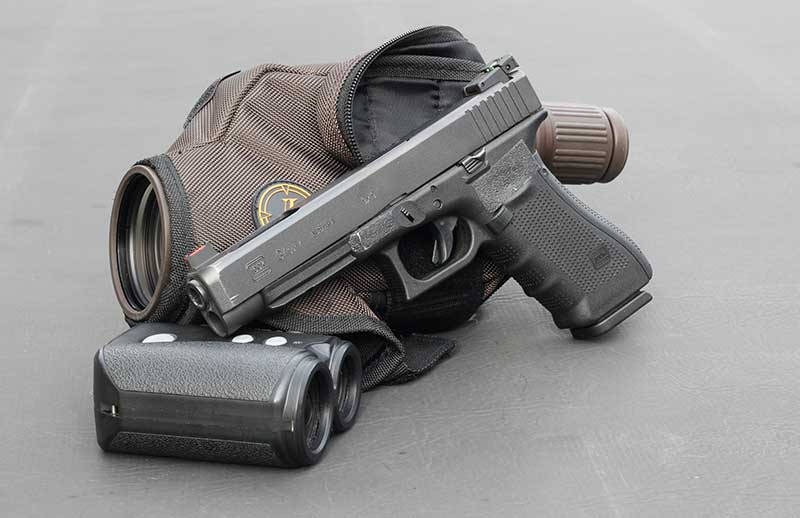
Strange company: New sitting positions allow the handgunner to shoot
to distances where he actually needs a spotting scope and range finder.
It is pretty fast to assume and not as dependent on getting a solid natural point of aim as SHK. This position works really well with the polymer service pistols and is a great match to 9mm level recoil. The SKS recovers quickly, allowing very fast follow up shots. Heavy loads and sharp edged guns can be a poor match here, allowing the gun to bite into the patellar tendon if care isn’t taken how the gun is placed. However, I’ve fired heavy .44 Magnum loads from the position with only slight discomfort. The hits were worth it.
Stacked Feet is adapted directly from the similar rifle position I first saw taught by Kyle Lamb in VTAC classes. The shooter sits down with the support side leg extended straight toward the target. The firing side boot heel is “stacked” onto the support side toe and the handgun’s butt is then rested onto the shooting side toe tread. The position does require a little flexibility, but not as much as you may think.
Many service pistols will plop five premium JHPs
into a 2.25-inch average at 25 yards. They will often
do this or better with several makes or grain weights.
The shooter must take care when assuming stacked feet to not sweep his own feet. Similarly the shooter must be aware during recoil as some combinations of pistol, load, and shoe tread may allow the gun to slip off of the “platform” and be very near muzzling the top foot. For these downsides the shooter gains another viable position that is tailor made for downhill shots. If the shooter has a good position the stacked feet can recover the sights pretty quickly.
As with SHK, stacked feet can restrict air supply slightly, requiring the shooter to break position slightly to oxygenate if winded.
GOING HOT
I worked the three sitting positions over several range sessions to demonstrate the potential. Handguns were a Glock 34 9mm to represent the service application and a Smith & Wesson Model 69 .44 Magnum to showcase trail gun/hunting scenarios. Ammunition used was primarily Hornady 115-grain Critical Defense and 135-grain +P Critical Duty in 9mm and 225-grain Hornady LeverEvolution and Winchester Razorback in .44 Magnum.
I shot the handguns extensively at 75, 100, and 120 yards. Targets were an eight-inch plate at 75 yards, paper targets at 100, and a 16-inch steel silhouette at 120 yards. The eight-inch plate was tough, but I had no trouble getting hits with all three positions with either the G34 or Model 69. Much to my frustration I haven’t put together five straight hits yet, but rang the eight-inch steel four for five on numerous occasions with both guns. Position used on these runs were both the Sitting High Knee and Knee Straddle.
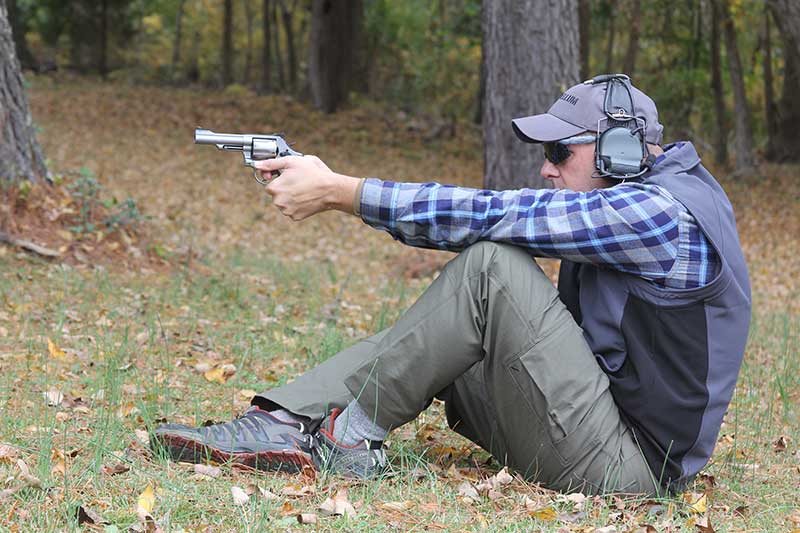
Sitting High Knee position. SHK allows a similar grip and visual
relationship with the gun that the shooter uses standing.
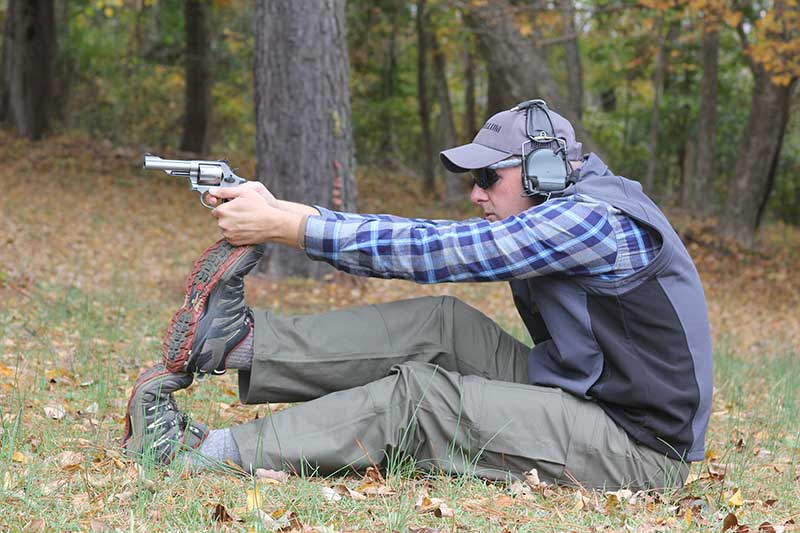
Stacked Feet. For shooters preferring to rest the butt for stability the shoes can be drafted into service.
Paper at 100 was mostly used to verify holds and zero. Groups from the positions hovered around seven inches for the best four out of a five shot group. Keeping hits in the “C” zone of a silhouette was a simple chore, with most falling into the ten-inch square B8 repair center target.
The 120-yard silhouette looked a long way away once I focused on the front sight, but the positions kept the sights hovering neatly on target. From there it was just the discipline to break the shot cleanly. As with the 75-yard head plate, my most common result was four out of five “clang!” sounds drifting back. However, I did have several “possibles” with both guns on the longest target.
The best of these 120-yard strings measured eight inches for five center hits with the 9mm and ten inches for the Hornady 225-grain .44 Magnums. The best three of the Magnum group measured an impressive four inches, well centered in the “A” zone! Both of these best groups came using the High Knee variation.
MAX EFFECTIVE RANGE
I intentionally didn’t shoot out past 120 yards for this article. Beyond that distance factors converge to rapidly reduce probability. Yes, people hit farther all of the time. Someone wins the lottery every day also, but that doesn’t make it a predictable outcome for you or I.
In my early experimenting with SHK I once hit a 200 meter silhouette with four straight shots from a Smith M&P9 Compact and Black Hills 124-grain +Ps—a load that belly gun loves. All of the factors stacked in my favor on that day, but I would be happy with any hit out of four on demand, and not surprised if none connected. Doing something once is an achievement—being able to do it on demand is a capability.
The minute you have to hold over the target
or raise the front sight out of the notch to compensate
for bullet drop probability of a hit drops precipitously.
Many service pistols will plop five premium JHPs into a 2.25-inch average at 25 yards. They will often do this or better with several makes or grain weights. This would make a cone that extends out to 12 inches at 120 yards. Thus, a hit at 120 is entirely within the weapon’s envelope.
However, the issued pistol may not do that same 2.25-inch group with the issued ammo or a different lot of the previously good ammo. In this case, a good average for an ammo/pistol mismatch is probably about 3.5-inch groups at 25 yards. This works out to about 17 inches at 120 yards, or just barely on a typical frontal silhouette target.
This also assumes a perfect zero, which is a truly rare bird in the service pistol. Most pistols out in the wild are one-three inches off of the sights at 25 yards with whatever ammo is in the magazine, leading to bullets wandering off target at long range.
The ability to hold onto the target at a distinct aiming point is another large factor. The minute you have to hold over the target or raise the front sight out of the notch to compensate for bullet drop probability of a hit drops precipitously. At 120 yards handguns firing high velocity cartridges sighted for the common six o’clock hold at 25 yards can hold high chest with plenty of target visible to confirm placement and still drop rounds into the good stuff.
The + P 9mm loads and the 225-grain .44 Magnum loads like the Hornady and Winchester fly an almost identical arc, allowing the same holds at most practical distances if the guns are zeroed similarly. Guns sighted for center at 25 yards and low velocity cartridges sighted at six o’clock lose about 20 yards, maxing out at about 100 before the rounds start to drop off with a standard sight picture.
The best part of these three sitting positions is that they allow nearly the same grip on the handgun and relationship with the head as the shooter’s accustomed stance. The sitting just adds real stability. The shooter can apply almost all of his practice into the long shot.
I have come to expect to be able to shoot groups that rival benched efforts from the sitting positions. However, it is just another tool. Sitting may not adapt to available cover or fit a given situation. But if it does, it allows some great shooting.
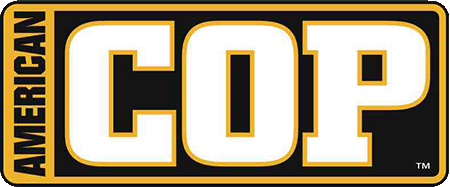

 (No Ratings Yet)
(No Ratings Yet)